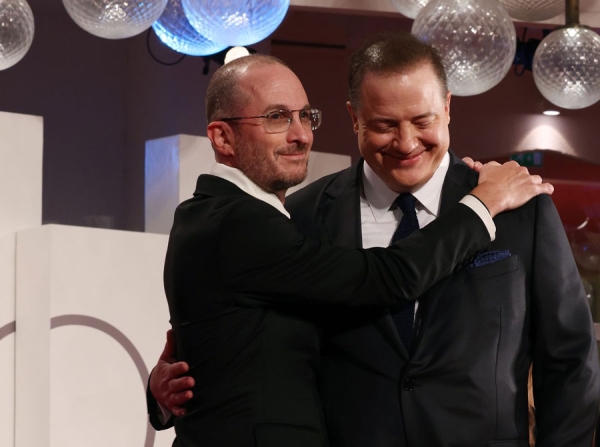Aronofsky's new film "The Whale" makes viewers suffer

I cried both on Saturday and Sunday. Sobbing out loud. On Saturday I heard Gustav Mahler's third symphony for the first time at the Los Angeles Philharmonic. The conductor was the legendary 86-year-old Zubin Mehta - he can barely walk; for the entire 99 minutes of the concert he sat in front of a huge orchestra on a high chair, but you had to see with what delight the musicians looked at him. It’s a blessing to be so old - to perform, to see a full audience giving a standing ovation. I was impressed by the way Zubin and the choir quietly sang lines from the poem “Thus Spoke Zarathustra.” I have no musical education, almost no hearing. But I feel the music in every cell. Mahler's third symphony is an incredible work about universal love and pain, which continues endlessly for absolutely everything living and inanimate, visible and invisible. This is just wonderful, because essentially nothing else exists. All the social meanings that we attach to life, they have no meaning and are insignificant in comparison with the cosmic absolute of which we are a part. Mahler's work is about this. It is impossible to believe that man created it. Now I dream of hearing Mahler's fifth symphony, which is considered the pinnacle of symphonic music. The film “Tar” with Cate Blanchett, which is difficult for the average person to understand, is dedicated to her. If you do not decipher the insider references to the world of classical music and directly to Leonard Bernstein, which can only be understood if you know the biography of the conductor, then you can watch a movie about a lesbian conductor and not see the deeper meaning and tragedy. By the way, it is curious that Bernstein bequeathed to be buried with the score of Mahler’s fifth symphony. When you go to such classical concerts at the Los Angeles Philharmonic, you forgive this city for minor shortcomings like monotonous weather and bad manicure. Sometimes they share with me their impressions that classical music doesn’t come in: I went to M...va’s concert and it didn’t take me. And this is understandable and explainable - that very performance is the key to this addiction when you are looking for the next concert.
And on Sunday we watched “The Whale” by Darren Aronofsky. Aronofsky is a real sadist. He knows how to hurt the viewer in such a way that sometimes it is hard to bear. “Keith” is Charlie, the 300-pound literature teacher. A beautiful and stunningly kind man dealing with the death of his partner, a difficult relationship with his teenage daughter, trapped in an ugly fat body. He is played first-class by the forgotten Brendan Fraser. Charlie is deliberately destroying himself - he’s tired, he can’t stand this world anymore, he hasn’t coped with anything and no one needs him. And it's so sad. The theme of sophisticated destruction of personality is Aronofsky’s favorite. The entire film takes place in one room, and at the 100th minute I began to feel claustrophobic, and the main character began to suffocate. "The Whale" - you need to watch it for two hours of inhuman suffering to remind yourself how important it is to empathize with other people. Even strangers.
It’s amazing how it coincided that these two masterpieces, musical and cinematic, immersed me in diametrically opposed experiences. When there are no questions, what is art - only when there are such feelings.
Author: Yunia Pugacheva



